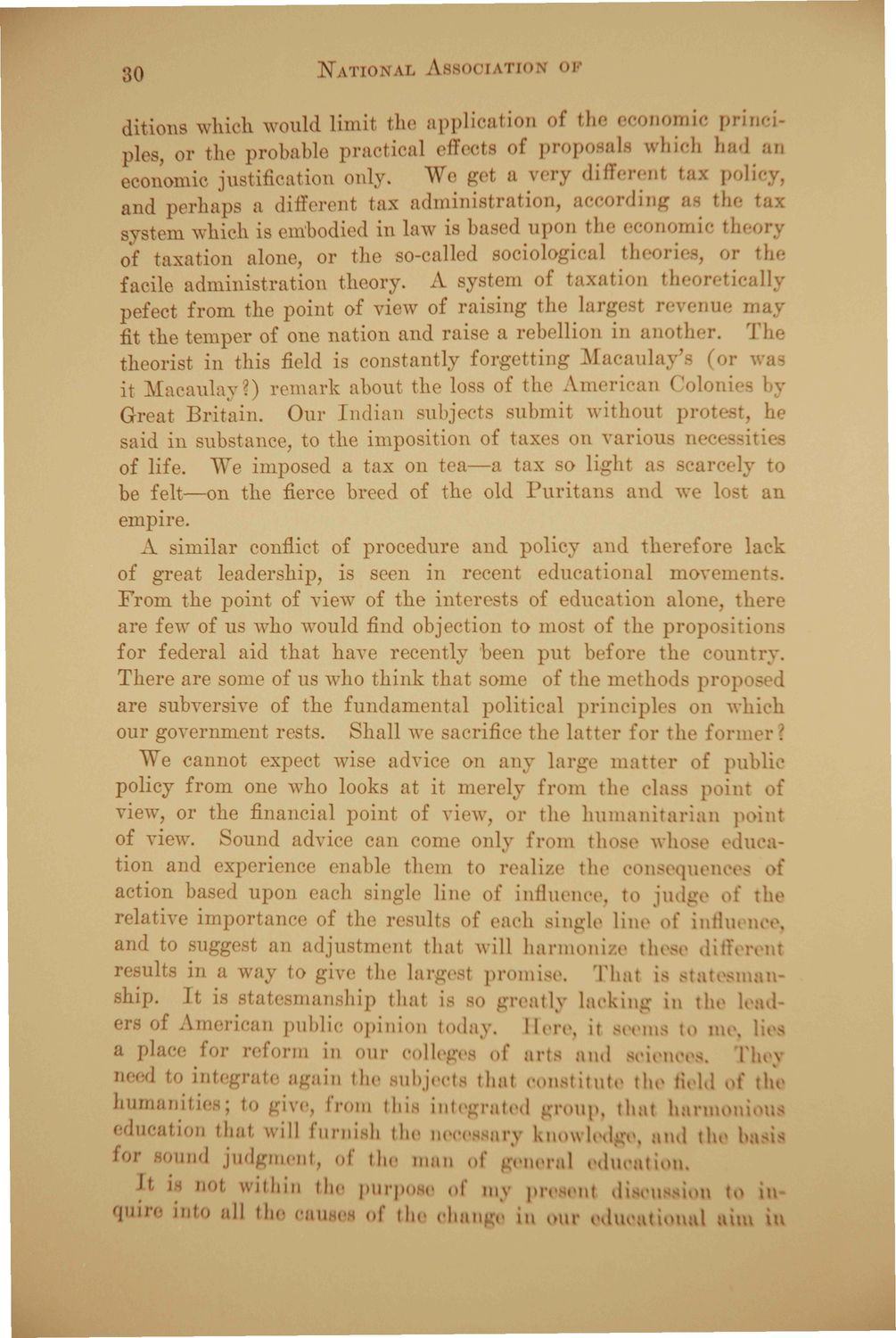| |
| |
Caption: Booklet - Kinley Speech Cirrculum and Consequences (1924)
This is a reduced-resolution page image for fast online browsing.

EXTRACTED TEXT FROM PAGE:
30 NATIONAL ASSOCIATION OK ditions which would limit the application of the e momic principles, or the probable practical effects of prop< als which had an economic justification only. Wo get a very different tax policy, and perhaps a different tax administration, according b the I I system which is embodied in law is based upon the economic theoi of taxation alone, or the so-called sociological theori or tie facile administration theory. A system of taxation tin tically pefect from the point of view of raising the largest revenue may fit the temper of one nation and raise a rebellion in another. The theorist in this field is constantly forgetting Macaulay^s (or wa it Macaulay?) remark about the loss of the American Coloni a by Great Britain. Our Indian subjects submit without protest, he said in substance, to the imposition of taxes on various n asities of life. We imposed a tax on tea—a tax so light as scarcely to be felt—on the fierce breed of the old P u r i t a n s and we lost ai empire. A similar conflict of procedure and policy and therefore lac! of great leadership, is seen in recent educational movements From the point of view of the interests of education alon . there are few of us who would find objection to most of the propositions for federal aid that have recently been put before the country There are some of us who think that some of the methods pi p < 1 are subversive of the fundamental political principles on which our government rests. Shall we sacrifice the latter for the former TTe cannot expect wise advice on any large mat! r of publi policy from one who looks at it merely from the class p view, or the financial point of view, or the humanitarian ] hit of view. Sound advice can come only from those who • education and experience enable them to realize the consequences ( action based upon each single line of influence, to judge i the relative importance of tin results of each single line o( influence, and to BUgg it an adjustment that will harmoni tic V: results in a way to give tbe largest promise. That is siati :i- lnp. It is statesmanship thai is so jrreath lacking in the bad- ers 01 American public opinion today, Here, it E ms to me. 1 a place for reform in our coll. es of arts and scionc, . Th< \ need o, Integrate again the subjects that constitute the field of tin humanities; to give, from this ml rated roup, that harmoni ucation that will furnish tbe u,r. irV knowUnlj . and th or mnd judgment, of the man of gonera] oducation. It is not within the purp < of m\ pp< om > • l > to in n mi 'l into .'ill (In- causea of the chang in our i In itional aim in
| |